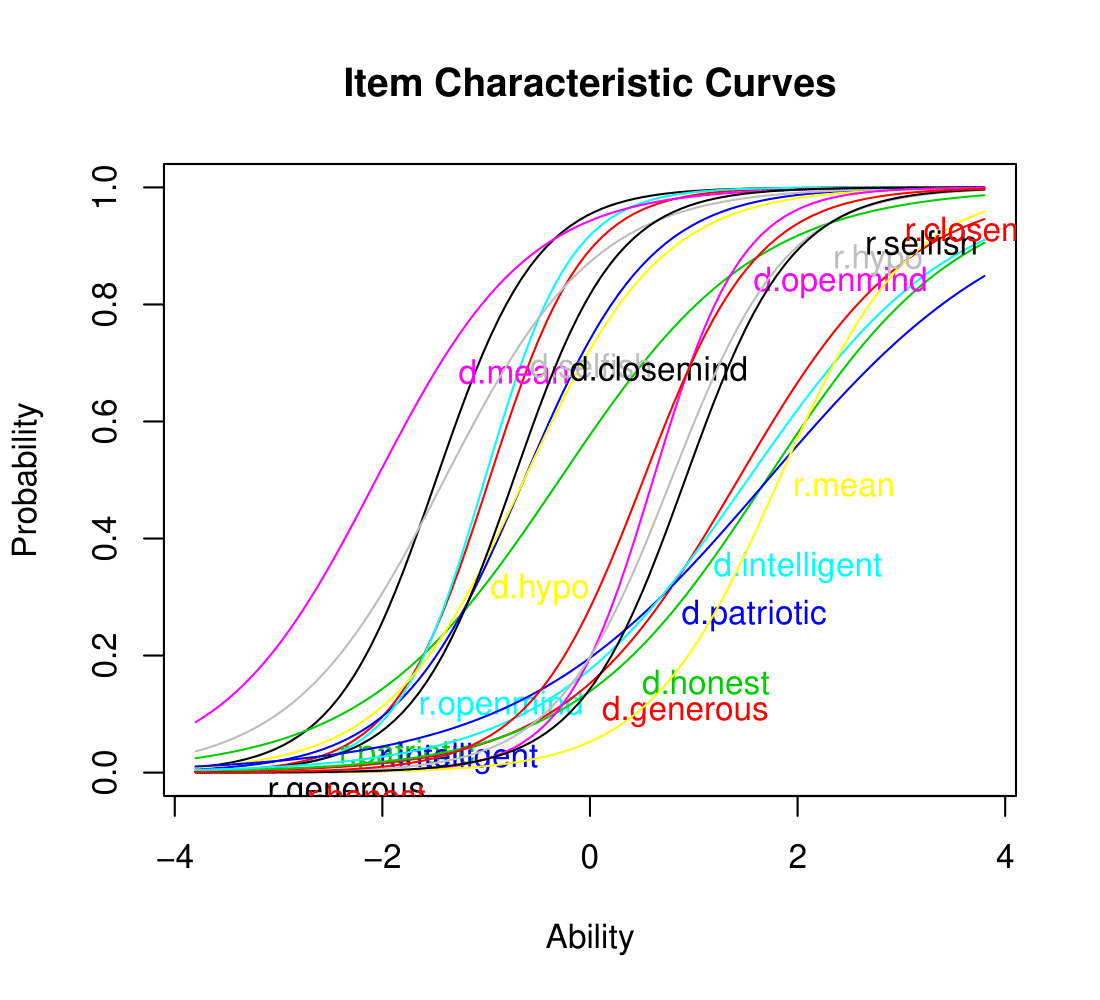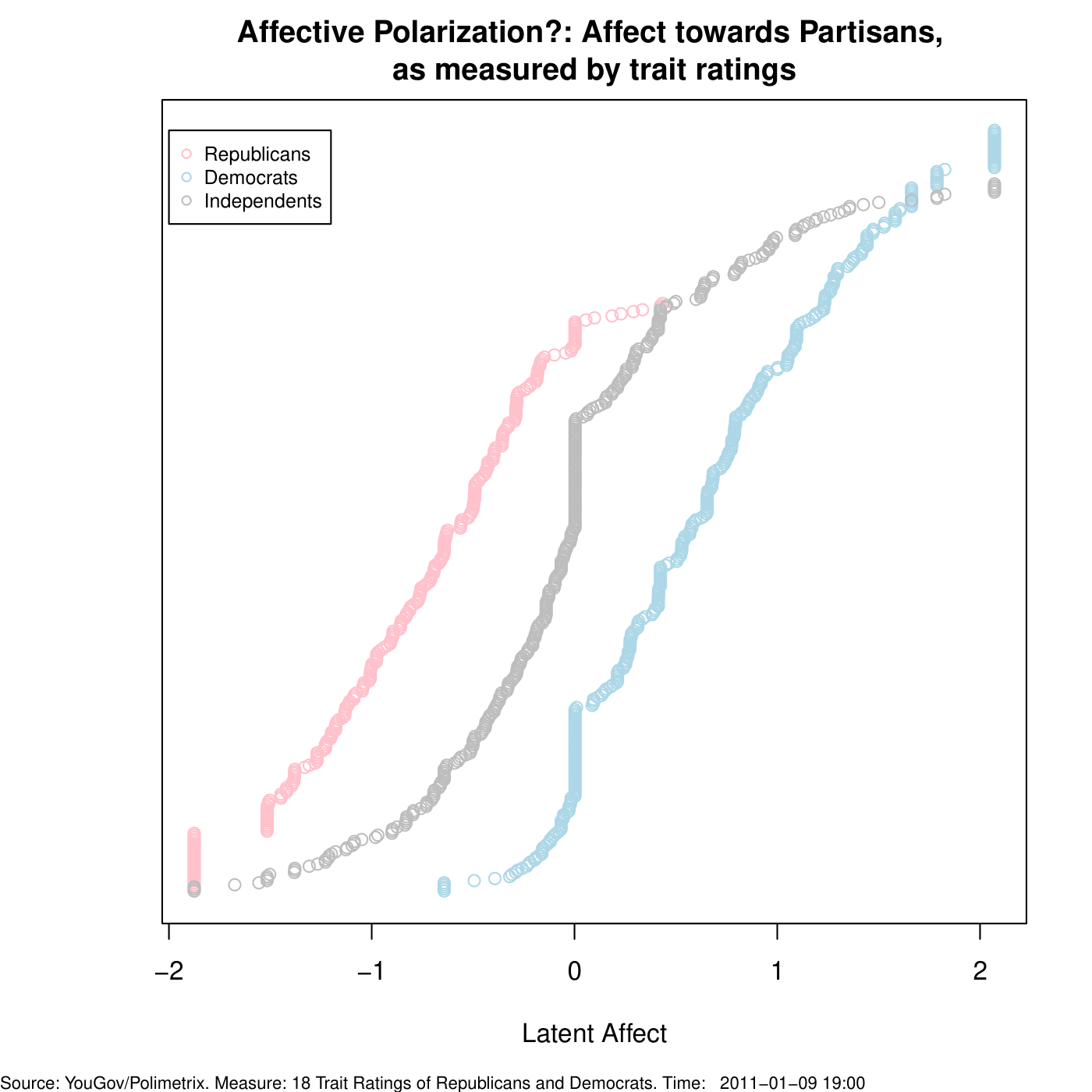Affectively Polarized? Partisan Polarization Among the Masses

The shooting of Representative Giffords has reignited the debate about the extent to which the public is polarized. Some political scientists have answered the question by analyzing people’s policy positions over the years. And the data are clear on the question—no, not really.
However, a lack of ‘real’ differences hasn’t always meant a lack of perceived differences. Nor has it meant a lack of negative affect. Affective dislike, conditional on similarity, is unsurprising and typical, as the history of racial and ethnic hatred will attest.
So, we tested to see whether partisans dislike each other. We asked a representative sample of Americans whether certain traits described Republicans and Democrats. From evaluations on 18 traits (selfish, generous, close-minded, honest, etc.), we created a latent measure of partisan affect (see below). See also a plot of latent partisan affect by partisan self-identification.

